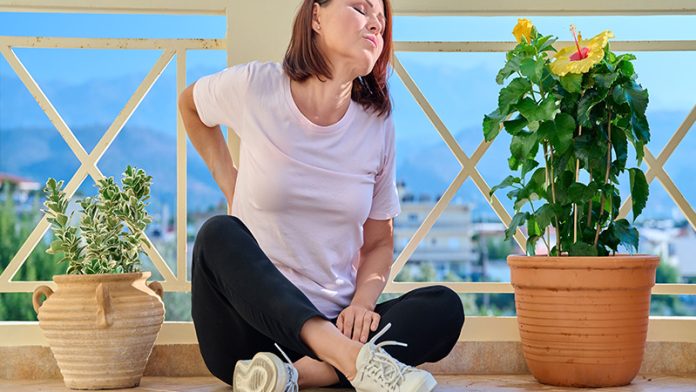
Hormonal changes during menopause cause hot flashes, night sweats, and itchy skin; in layman’s terms, we can also address it as menopause itching. Alterations in the skin’s colour, acne, and wrinkles are examples of other changes. The level of itching varies, might be light or severe, and can interfere with daily activities.
What is Menopause Itching?
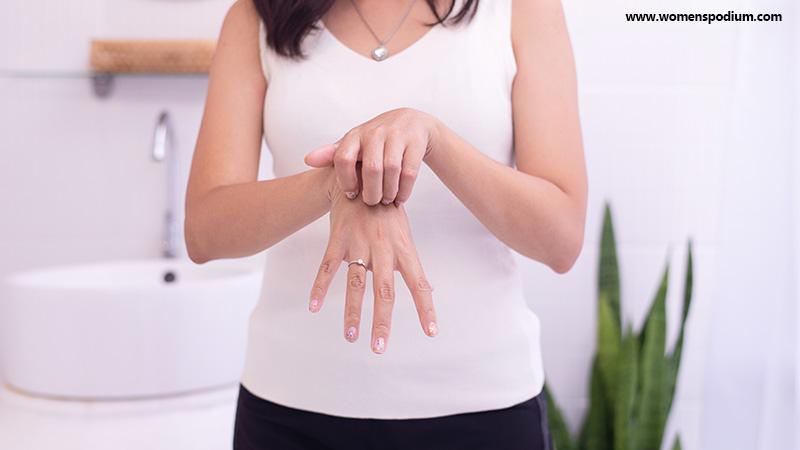
The term “pruritis,” also known as “menopause itching,” is used to describe the sense of itching and is defined as an uncomfortable feeling that makes a person want to scratch. This disorder is frequently the source of changes in the skin brought on by menopause.
Causes of Itchy Skin During Menopause

Estrogen is a significant factor in how the skin looks, and the consequent decline in oestrogen levels impacts collagen formation, which principally maintains the strength, elasticity, and suppleness of the skin. Estrogen drop causes dry skin and decreases the body’s capacity to create the essential amounts of skin oil, which are crucial for maintaining the skin’s moisture. A reduction in collagen and natural oils can cause the skin to become drier and more delicate than it was before menopause, which can make the skin feel scratchy. All these decreases in natural oil and collagen cause skin dryness and menopause itching.
Symptoms of Menopause Itching
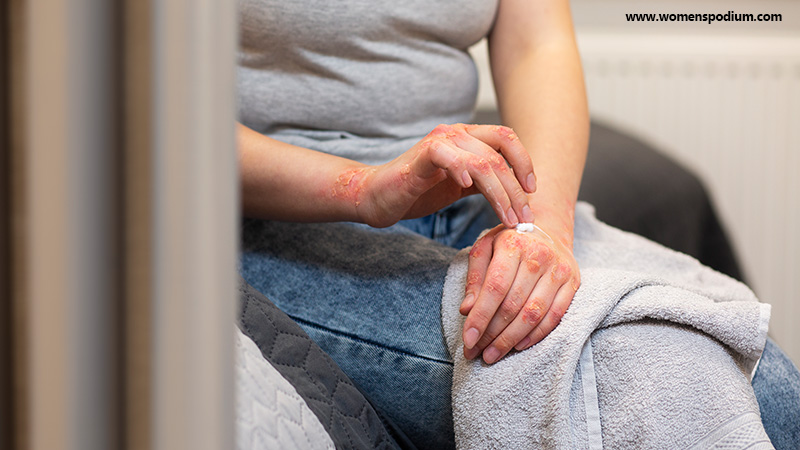
- Menopause itching is like crawling skin, which causes women to feel as though insects are crawling beneath their skin.
- Women frequently describe experiencing numbness or a tingling, prickly sensation on their skin.
- The skin of the back, arms, legs, face, neck, and chest becomes dry and itchy.
- Women may also have skin rashes, itchy skin, or even tiny pimples.
- Acne, rashes, pigmentation, and wrinkles are among more skin alterations that might happen.
How to Prevent?
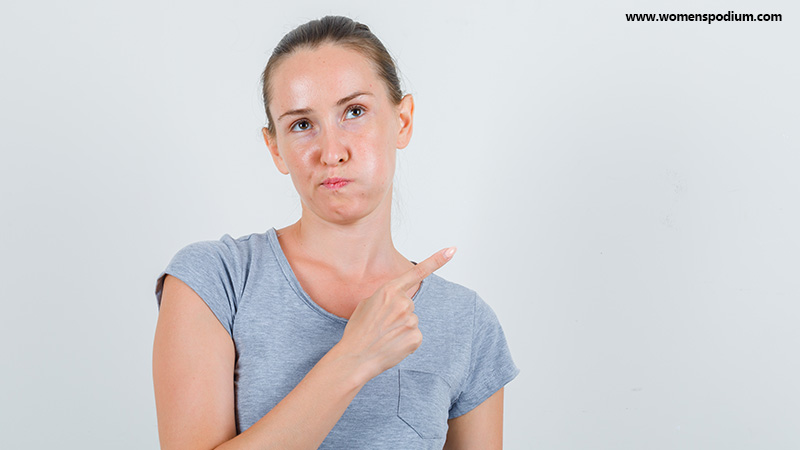
- Avoid scratching; if the skin is sensitive or irritated, it can be torn and damaged by itching. Even though it can be tempting to scratch, try to cool the affected region with a compress.
- Avoid taking hot baths or showers; lukewarm water works better for bathing since hot water can strip skin of its natural oils.
- After washing, pat dry since touching the skin might make it irritated. Instead, use a soft, clean cloth to pat the skin gently.
- Use fragrance-free skincare products; perfumes and scented cosmetics frequently include harsh chemicals that can irritate the skin even more.
- Wear loose-fit, soft cotton clothing; avoid synthetic fibres, which can stick to the skin and aggravate it.
- Stay hydrated; maintaining adequate water intake is crucial for maintaining healthy skin in general.
- Avoid alcohol and nicotine since they are known to dry the skin and accelerate ageing.
- Avoid direct sunlight since it might aggravate dry, sensitive skin. Wear a high daily SPF that is always good for sensitive skin.
Menopause and Dry, Itchy Skin and Home Remedies

- Use a high-quality moisturising lotion to keep the moisture in the skin’s top layer and lessen the dryness that causes itching.
- Aloe vera possesses antibacterial, antifungal, and anti-inflammatory qualities that can treat rashes and calm the skin.
- The anti-inflammatory qualities of oatmeal make it a good choice for treating skin rashes and itching. Oatmeal can be finely processed into a powder known as colloidal oatmeal. With its exfoliating properties, colloidal oatmeal makes an excellent scrub. Besides scrubbing, you can take a bath with colloidal oatmeal, take a pinch of the oatmeal powder and add it to the water; when it dissolves, the water turns milky white, and that’s the right consistency. Spend 10 to 15 minutes relaxing in a warm bath.
- Adapting a healthy lifestyle and a balanced diet help cope with menopause itching.
How to Treat Itchy Skin?
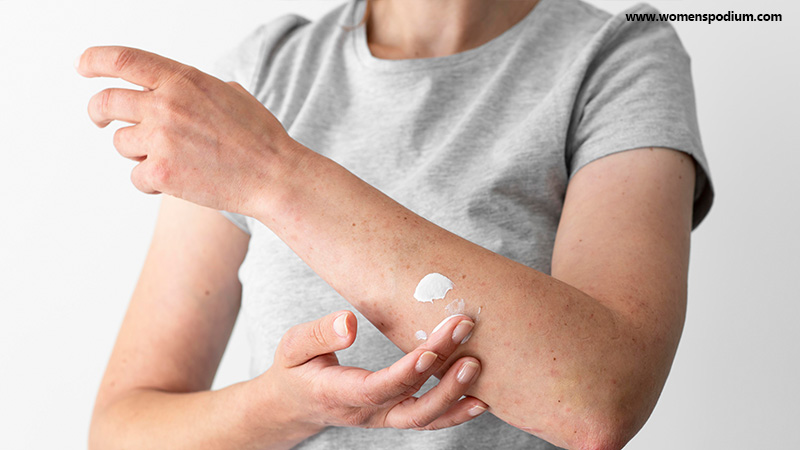
1. OT Creams
Plant-based treatments like aloe vera or menthol may help soothe the simple itching.
2. Corticosteroids
An itch that is inflammatory or allergic in nature can be effectively treated with an anti-itch cream that includes at least one per cent hydrocortisone. It will soothe irritated, itchy skin by reducing the inflammatory reaction. Try not to use it for more than one week; talk to a doctor first. Topical steroids can have adverse side effects, including skin thinning, redness, and blistering if used for longer than a week.
3. Nutrition
A balanced diet full of organic foods is vital for good skin. Drinking plenty of water can help you stay hydrated and keep your skin moisturised and smooth. There is evidence that several supplements are appropriate for the skin, including vitamin C, topical and oral gamma-linolenic acid (GLA), collagen peptides, evening primrose oil, and Omega-3 fatty acids.
4. Cosmetic Anaesthetics
Topical anaesthetic medications, like Benzocaine lotion, temporarily relieve irritation by numbing the skin. They should not be used for broken or injured skin because they might exacerbate irritation. They are only meant for short-term usage.
5. Antihistamines
Usually, antihistamines are prescribed to treat allergies, but some individuals also take them to ease the itching associated with menopause. One can consume it orally or topically as a cream.
6. Replacement of Hormones (HRT)
HRT is a successful therapy for menopausal side effects, including itchy skin. It functions by substituting hormones that begin to decline as menopause approaches. Strengthening the collagen in your skin and increasing its moisture can be achieved by replacing the oestrogen lost during menopause. This may lead to skin that feels and looks healthier and is brighter and less irritating.
7. Phytoestrogens
Plants contain naturally occurring substances called phytoestrogens. They can connect to oestrogen receptors and function similarly to body-produced oestrogen. Recent studies advocate the effectiveness of phytoestrogens in alleviating the symptoms of menopause itching. But according to a review paper from 2014, phytoestrogens could offer some of the same advantages as HRT while having fewer or milder adverse effects.
Final Views
Wide-ranging hormonal changes that occur in the body during menopause are the leading cause of various menopause symptoms. During menopause and perimenopause, many women have symptoms linked to itchy skin, including itchy breasts, scalps, skin, and genitalia. Menopause itching can occur day or night and is quite unpleasant. In this article, we have discussed what triggers itchy skin (medically referred to as pruritis) during menopause, where it may occur, and how to treat it.
Fortunately, symptoms of menopause, like dry, itchy, or prickly skin, usually improve with time and shouldn’t last until postmenopause. Although itchy skin or menopause itching is not a life-threatening condition, it can be a nuisance and a sign of a more severe condition. Urgently make an appointment with the doctor if the skin itches, hurts daily life and does not improve with home therapies or it looks like a lump, rash, or swelling that might indicate something serious.
Also Read: Thinking of transitioning to some new alternate skincare products? 7 Reasons why you should start using vegan beauty products.





